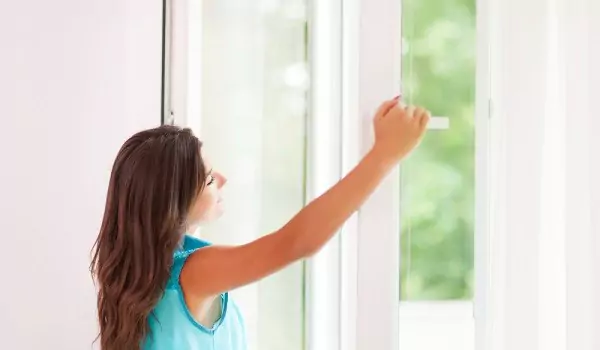How To Mould Proof Your Rental Property?
Mould is more common than you think and if you are living in a humid place like Darwin, it can become a real problem very quickly. It often starts small, with black spots on the bathroom ceiling or a musty smell in the cupboard. But if left untreated, it spreads fast and can damage walls, furniture and even affect your health. For people with asthma, allergies or other respiratory conditions, mould can be especially harmful.
Mould prevention is critical regardless of whether you rent or own your house. It can harm your home and, if you’re moving out, it may result in bond deductions. This blog will discuss basic ways to keep your rental mould free and avoid bigger issues later. Regular mould inspections should be part of your maintenance schedule, which is why professional bond cleaning Darwin often involves mould treatment and removal. Taking a few basic precautions today can help you save stress and money in the future.
1. Understand What Causes Mould
You should first understand the causes of mould formation in order to prevent it. Bathrooms, kitchens and laundry rooms are frequent places for mould to grow since it prefers moist, dark and poorly ventilated environments. Darwin’s tropical environment adds moisture to the mix, making these rooms even more vulnerable.
Mould spores are airborne and undetectable to the human eye, but once on a suitable surface, they can spread quickly. All surfaces, including walls, ceilings, grout, carpets, and furniture, are fair game. Understanding these environmental triggers will allow you to take appropriate action before things spiral out of control.
2. Ventilation is Vital

Good airflow is your number one defence against mould. Encourage tenants to keep windows open when weather allows and to use exhaust fans in bathrooms, kitchens, and laundries. Installing ceiling fans or even dehumidifiers can go a long way in reducing overall moisture levels.
Landlords also have the option of making structural improvements, such as installing portable fans or window vents. Darwin residents commonly use air conditioning to moderate the temperature and humidity. Regular cleaning and maintenance of air conditioners is very important because dirty filters can harbour mildew. /p
3. Fix Leaks Immediately
A leaky tap or a hidden pipe leak behind a wall might seem minor, but when it comes to mould, even small amounts of moisture can cause major damage over time. One of the most common reasons of unreported mould growth is water damage beneath floors or behind walls.
Tenants and landlords should work together to report and resolve plumbing issues as soon as they emerge. Periodic inspections by property management can help in early detection of problems. Addressing maintenance concerns during bond cleaning Darwin can help tenants avoid arguments and last minute repairs as they prepare to move out.
4. Choose Mould Resistant Materials
If you’re renovating or building, choose materials that naturally resist mould. Paints containing mould inhibitors, moisture resistant plasterboard, and tiles instead of carpet in wet places are also good options. Even in wardrobes, using wire shelves rather than wooden ones can enhance ventilation and prevent wetness.
For existing homes, applying mould resistant paint to bathrooms or regrouting tiles with antifungal treatments can make a big difference. These low cost modifications not only reduce maintenance costs, but also make your rental house more appealing to potential tenants.
5. Regular Cleaning and Inspections
Maintaining a high level of cleanliness is critical to preventing mould formation. Encourage tenants to clean their bathrooms once a week, wipe down wet surfaces, and air out cupboards and wardrobes on a consistent basis. Landlords may provide tenants with a cleaning plan or checklist to help them keep their areas free of mould.
When a tenancy is coming to an end, professional bond cleaning Darwin is really beneficial. These services typically include extensive inspections and mould treatments to ensure that the property is transferred in good condition. Even if you’re not planning on moving out, a professional deep clean once or twice a year can help control hidden mould.
6. Outdoor Drainage and Landscaping
Outside factors can occasionally be the root cause of indoor mould. Excess water might seep into the walls or foundations due to poor drainage, clogged gutters or gardens that slope towards the house. In Darwin, where tropical downpours are common, managing the water flow around your home is essential.
Redirect rainwater away from the house and keep gutters and downpipes clear. Place gravel or permeable areas around the foundation to help with drainage. Landlords can save hundreds of dollars in long term property damage by investing in good drainage and garden design.
7. Educate Your Tenants
Finally, tenant education is essential for mould avoidance. Establish explicit procedures for reducing moisture, reporting leaks and maintaining cleanliness. Some tenants may be unaware of how quickly mould grows in Darwin’s environment, or they may believe it is solely the landlord’s duty.
Consider including a mould information sheet in the welcome pack or tenancy agreement. Good communication and clear expectations create a better relationship and ensure both parties work together to keep the property safe and healthy.
Tips to Prevent Mould in your Rental Property

Wrapping Up
Cleaning up obvious stains or odours is not enough to prevent mould from growing in a rental home; a long term approach is needed. Because of the humid atmosphere in the city, prevention is crucial. Minimal steps like improving ventilation, fixing leaks and using the proper materials can have a significant impact, whether you’re a landlord defending your property or a tenant trying to get your bond back. In addition to being cleaner, homes free of mould also look better and are worth more.

